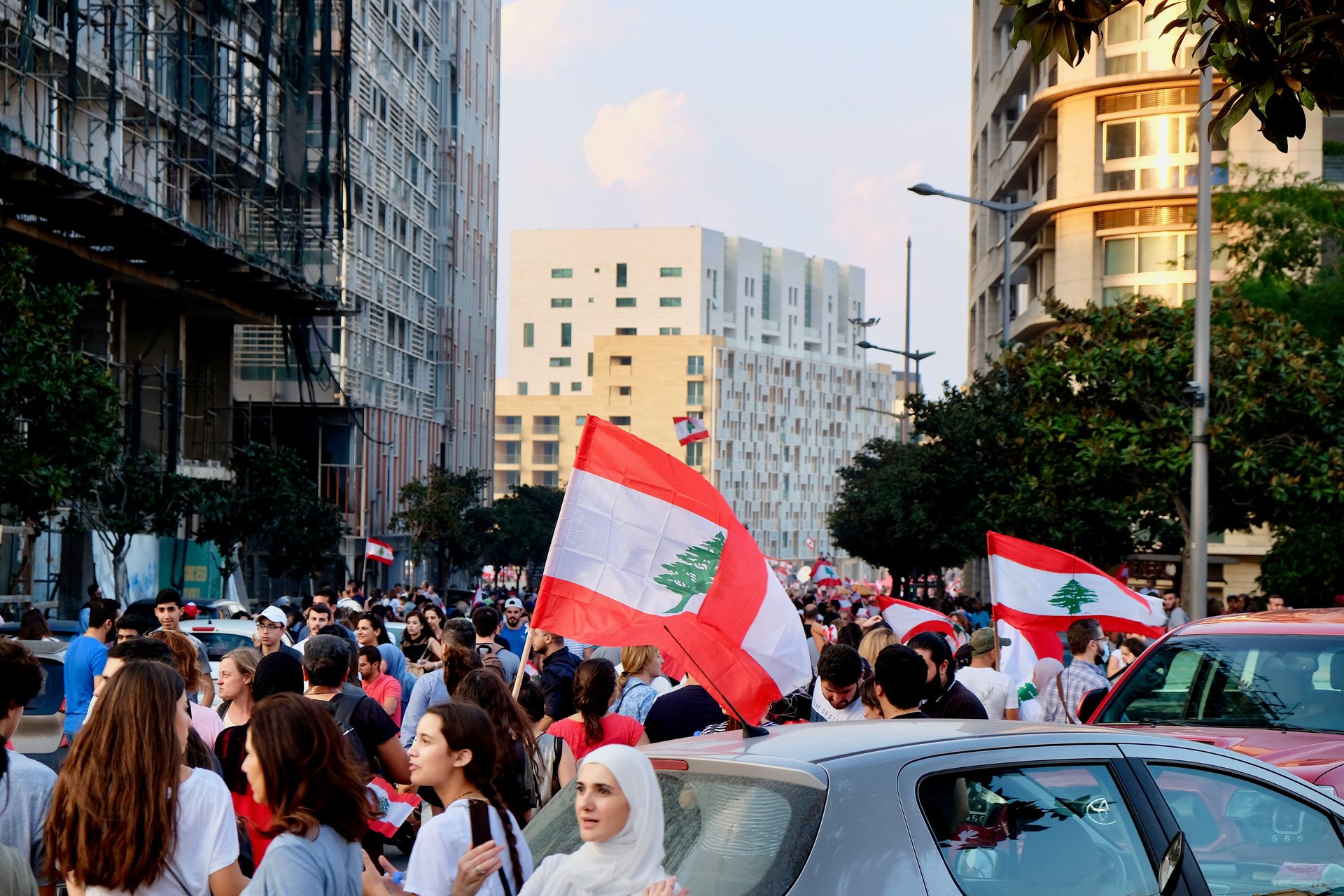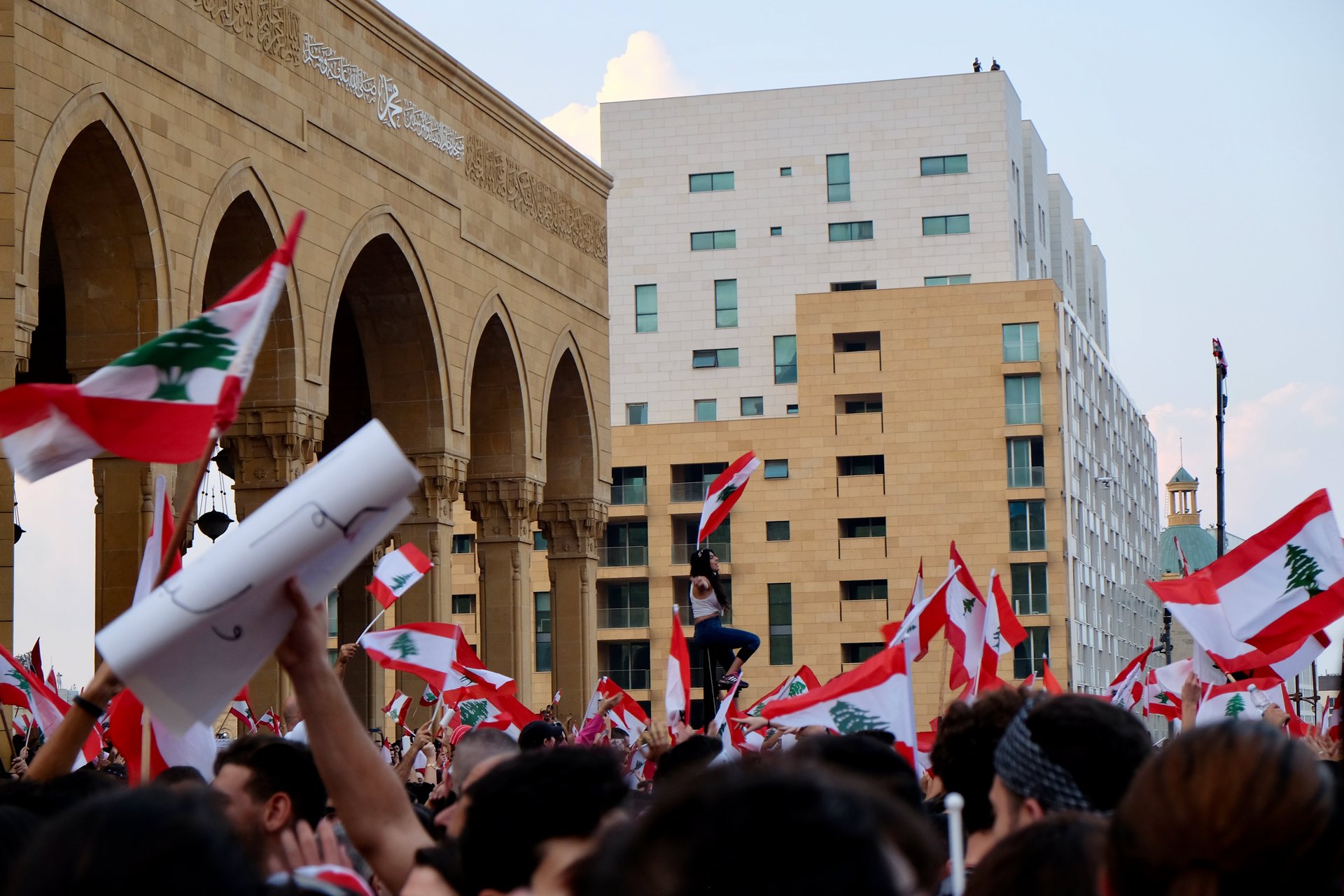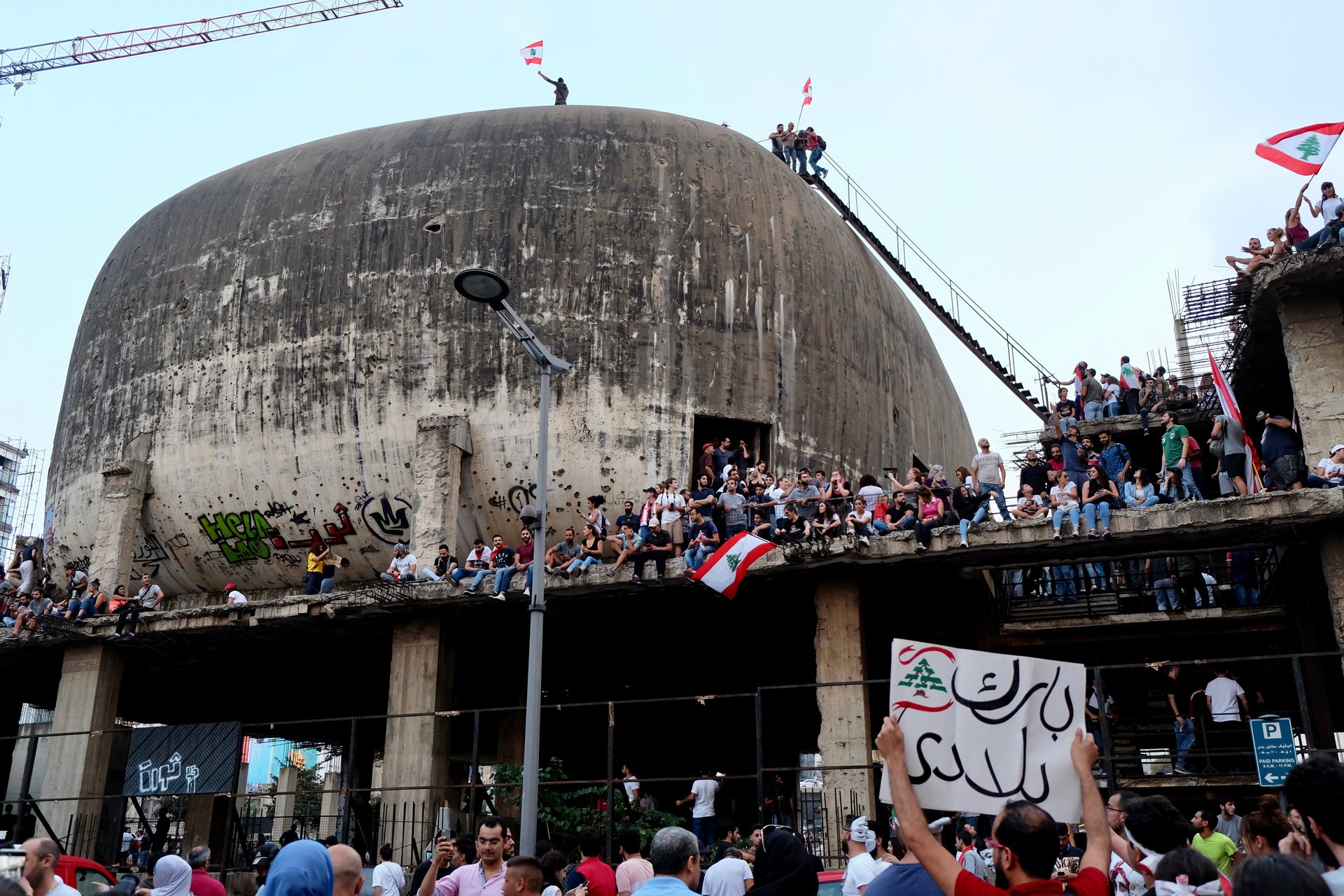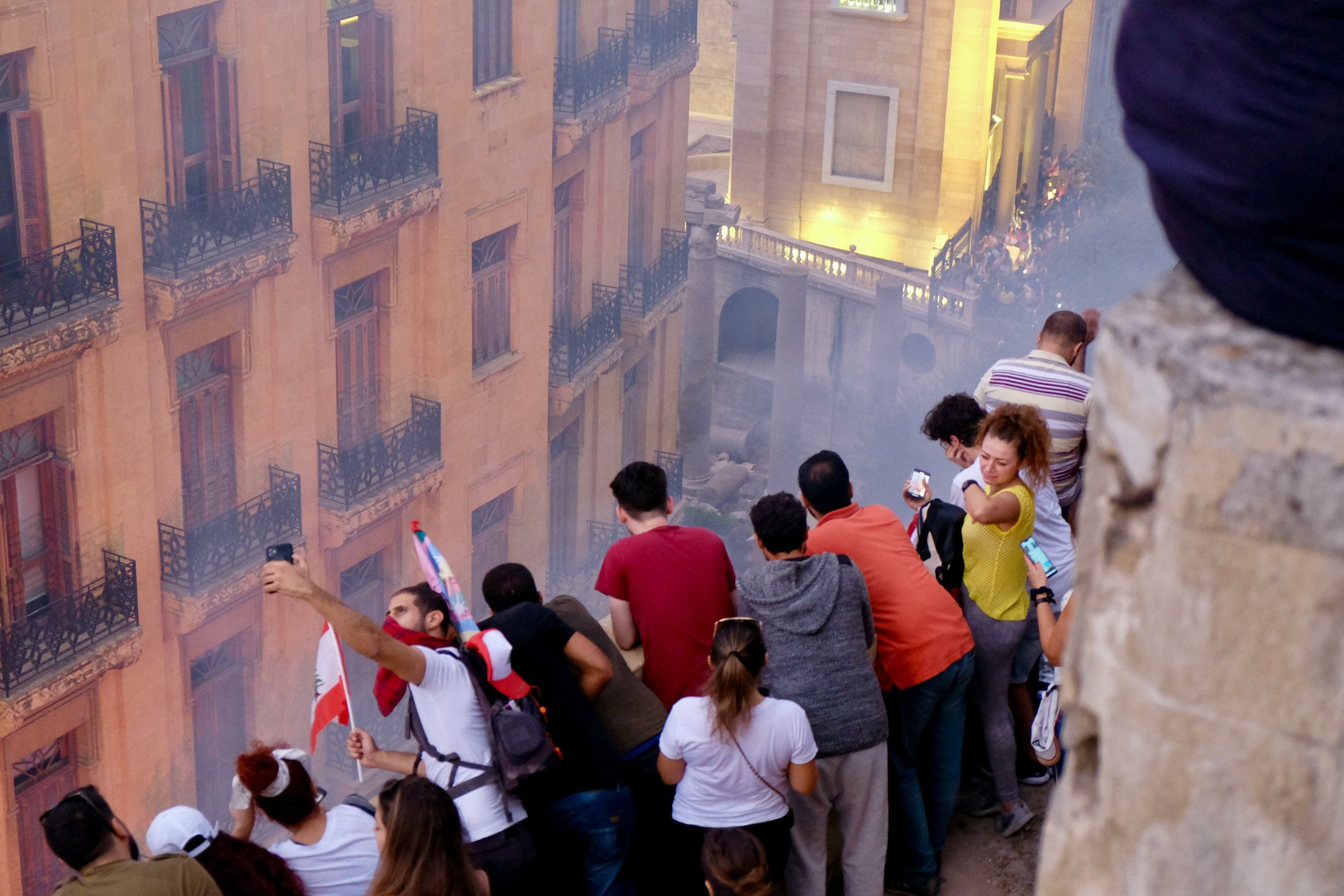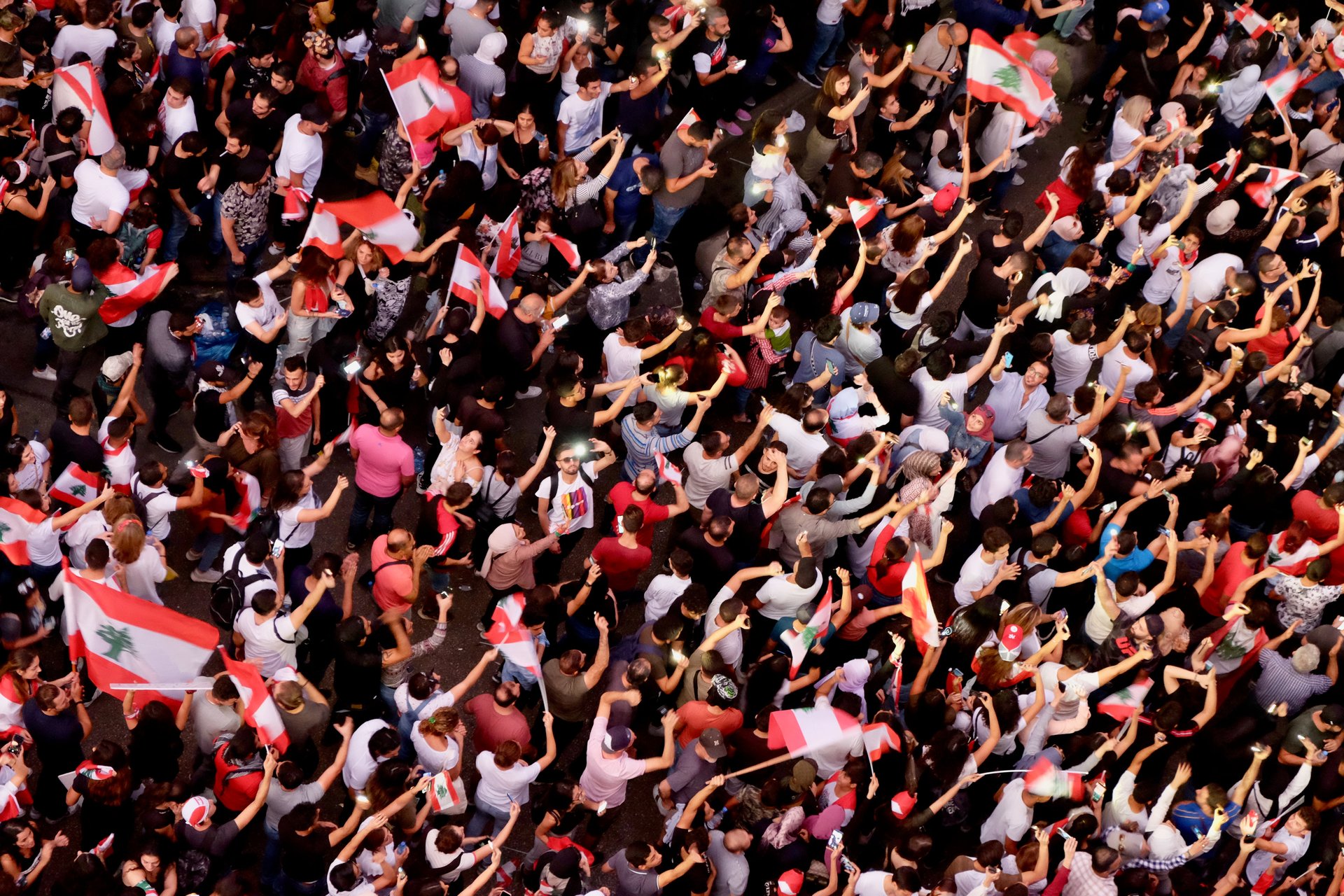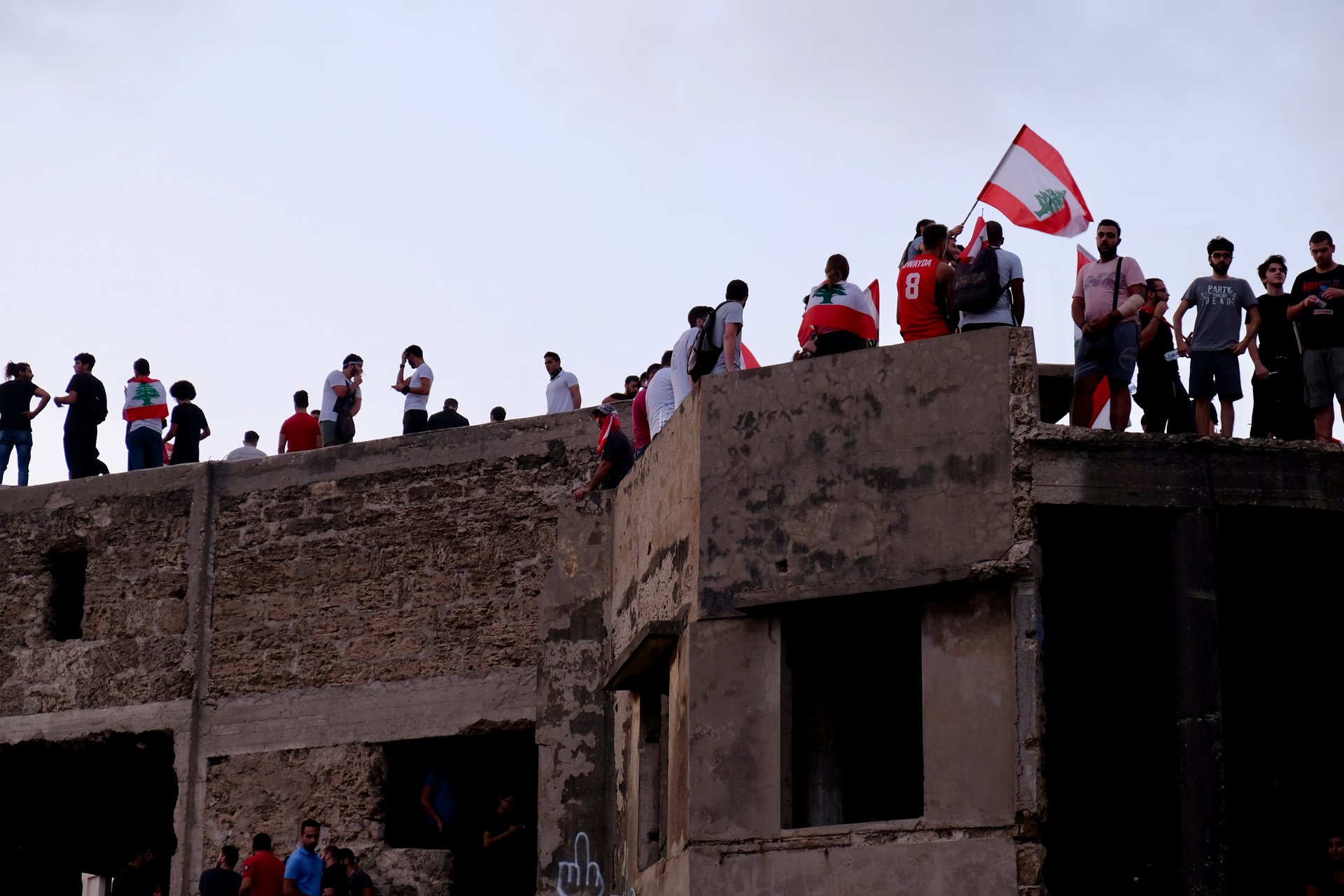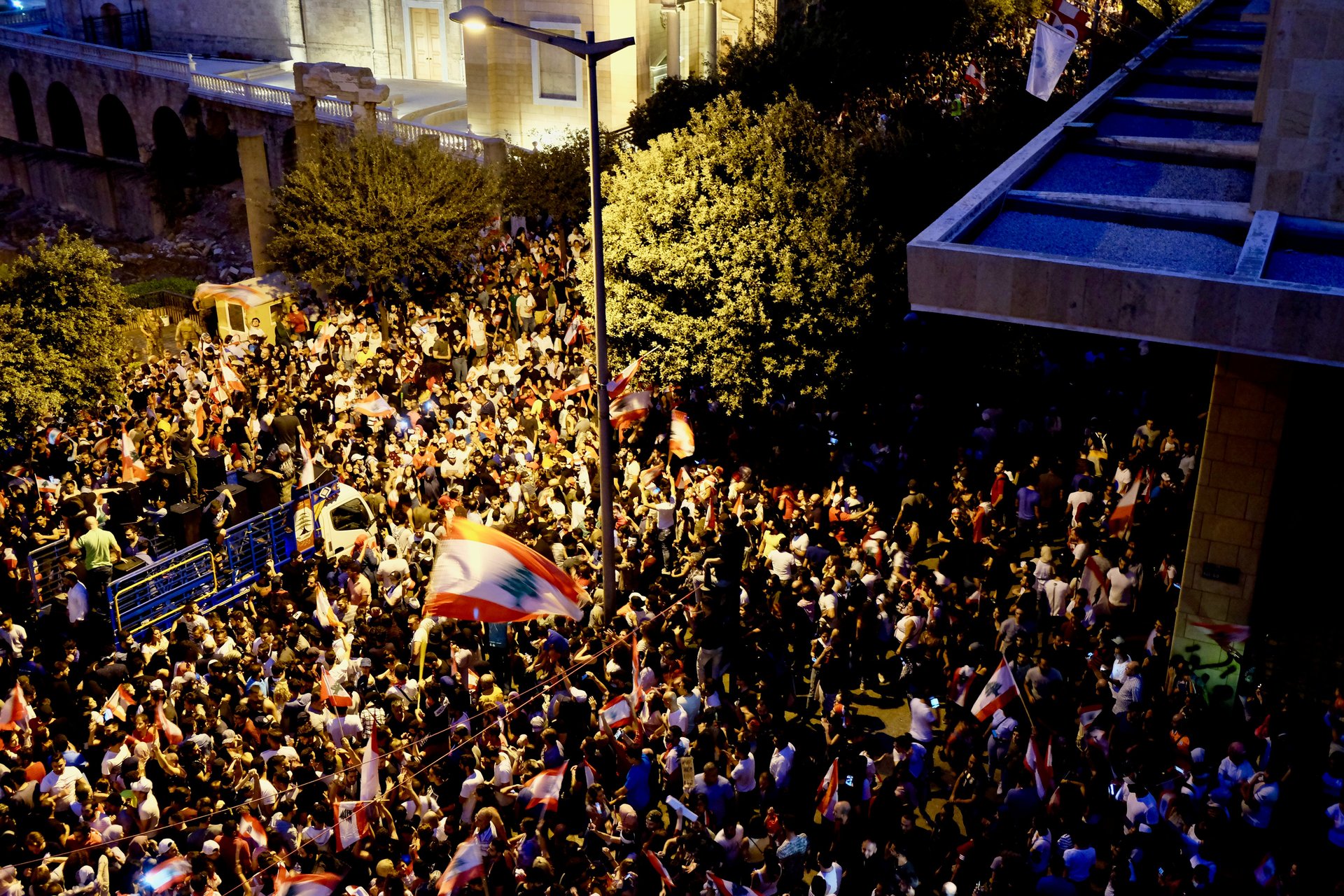Photos: This is how the Lebanese protest inequality
Hundreds of thousands of people—including more than one million on Sunday—have taken to the streets in cities across Lebanon in recent days to protest economic hardship and government corruption. A general strike took place today (Oct. 21), with banks, schools, and shops closing around the country.
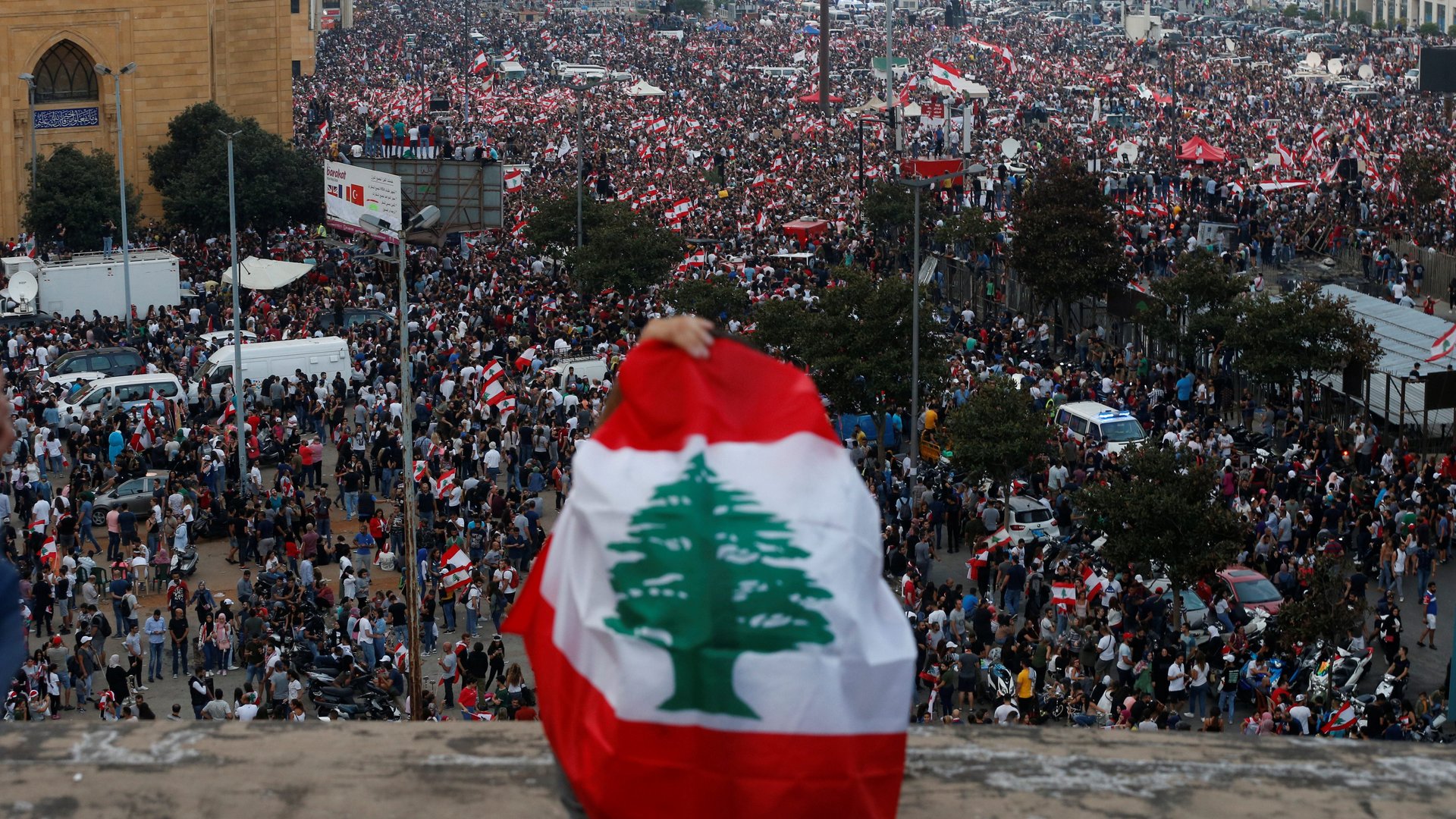

Hundreds of thousands of people—including more than one million on Sunday—have taken to the streets in cities across Lebanon in recent days to protest economic hardship and government corruption. A general strike took place today (Oct. 21), with banks, schools, and shops closing around the country.
The protests erupted after the Lebanese government proposed a tax on the use of WhatsApp and other messaging services, which most Lebanese use to communicate with friends and family. Lebanon already has some of the highest data costs in the world. Demands to reform the Lebanese government grew from there.
In response, the government quickly rescinded the WhatsApp tax and prime minister Saad Hariri, who leads a coalition government, told the cabinet on Friday that they had 72 hours to approve a raft of reforms aimed at mollifying the public. Among them were salary cuts for politicians, and a program to funnel millions of dollars to poor families. Hariri said today the reform package was approved.
That did little to satisfy protesters, however, and calls have continued for Hariri and the cabinet to resign.
The protests are the largest in the country since 2005, when the so-called Cedar Revolution successfully (and peacefully) managed to expel the Syrian forces that had been stationed in the country since the Lebanese civil war. The last major unrest was in 2015, when protesters took to the streets over the government’s failure to address a garbage crisis. The latest protests are more palpable critiques of Lebanon’s political and economic structures, and have drawn a diverse crowd as a result.
Below are scenes of Sunday’s protests in Beirut, the country’s capital.
